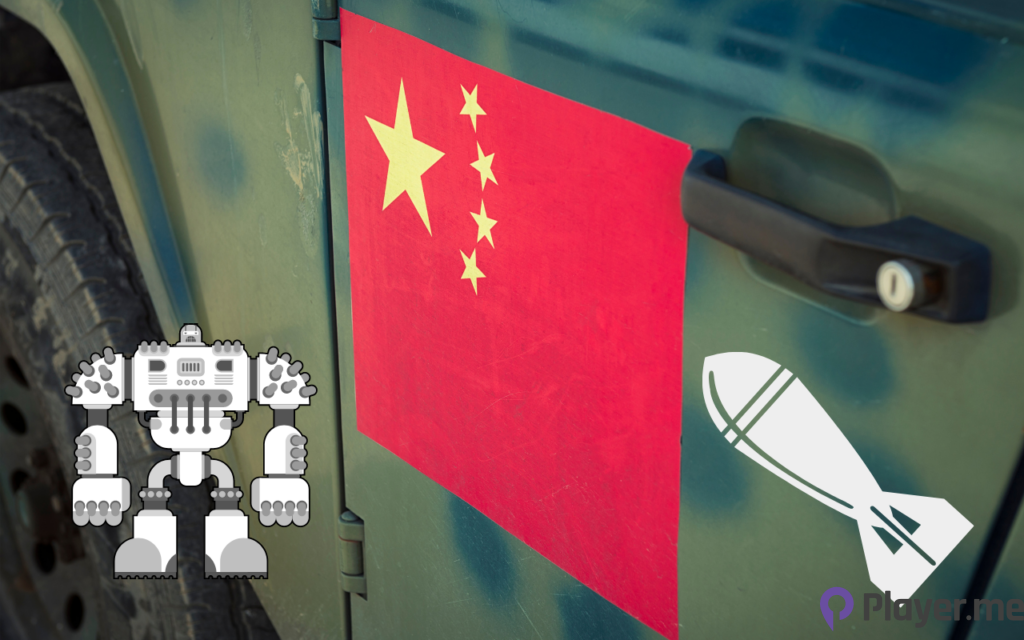The present time is the era of power acquisition through technology and robust economic policies. Different countries of the world are fighting for the supreme throne of economic power, pulling others into the race for dominance. China seems to take over supremacy in terms of modern technology, economy, and global relationships.
The United States of America and the People’s Republic of China are considered the two giant countries in the world of politics and finances. The massive progress from China made the U.S. collaborate with other countries to curb the operations of Chinese businesses. Japan has announced a regulatory imposition on Chinese technological products, aligning its policies with the U.S.
This action from Japanese authorities has raised an opposing voice in different parts of the country. Some Japanese officials want to stay neutral in the U.S. and China conflict, while others support the current rulings. This article will cover the major outcomes of this ruling of Japan.
Related: AI-Powered Virtual Hosts Disrupt China’s E-commerce Market
Japan Aligns with U.S. Chip Curbs on China

The leadership of Beijing is enthusiastic about creating a robust impression on the technology industry with advanced chip-making machinery. China needs to import the required machinery from a productive nation. Japan is a nation with manufacturing abilities of top-notch machines.
The U.S. does not want any country to export such machinery to China, making Japan and the Netherlands join hands with the U.S. This ruling strongly impacts China’s technology growth, resulting in unease between the two countries. It is worth noting that the chip-making process is a prominent factor in making high-quality military weapons.
Semiconductors yield robust military tools that can provide a huge blow to any country, making them a hazardous technological asset. Therefore, countries in the higher power rank always make moves to hinder actions and phenomena that can affect other countries directly or indirectly.
Also Read: Embraer Plans Electric Flying Taxi Factory in Brazil
The U.S. Policy to Curb Chip Manufacturing in China
With the decision coming forth, a layer of discussion has started in Tokyo, with many officials appreciating the U.S. policy of the restriction while others have expressed immense unease due to several reasons. Before discussing the reasons, it is essential to analyse the U.S. policy as it will help us understand the reasons better.
Joe Biden’s leadership in the U.S. is making constant moves to stop the export of numerous pieces of equipment to China. To fulfil this policy, they are making allies with other nations, including Japan and Netherlands. While the U.S. has restricted semiconductors only, Japan made a diplomatic move to avoid affecting its relationship with the Chinese leadership.
Thus, Japan imposed an export restriction on 23 pieces of equipment, including film-depositing machines, microscopic circuits, chip-making machines, and more. Japan did not stop the chip-making machinery directly, but its control provoked the Chinese leadership to take opposing steps towards Japan.
Read Also: U.S. Climate Law Sparks Clean Energy Technology Surge
#1. Advanced Military Weaponry

The primary reason for this sanction on China to import advanced chip-making machinery is the fear of high-tech military tools. As the chip is the requisite material of semiconductors that are used in powerful weapons, the U.S. is trying to control its usage. Therefore, China has to face restrictions from other countries, such as Japan and the Netherlands.
Japan has the best chip-making industries, from Nikon Corporation to Tokyo Electron Limited. Exporting the machinery to any region will require Japanese permission for these companies, making it clear that it does not directly ban export to China. However, the regulation comes right after the U.S. policy to curb Chinese technological growth.
#2. China’s Ambition of Robust Technology
From a background with a large number of poor people, China has become the first country to beat poverty and joblessness. China is ambitious to become a global sensation in technology, modern tools, and machines.
There is no stopping China, but the U.S. tries every method to hinder Chinese progress. The ban from Japan and Netherlands on chip-making equipment is a massive blow to the Chinese technology industry.
#3. Supremacy of China
Another reason the U.S. curbs China is to never let China take the supremacy and dominance it possesses. The Asian giant nation is on a progressive track in every field of life, including business, labour, industry, technology, and more. Therefore, the U.S. will leave no stone unturned to slow down the progress.
Unease in Tokyo From the Japan Ruling
Japan is a leading nation with higher production industries, acting as a strong rival to China. Apart from the business matters, China is a neighbour country to Japan, and their concerns about a certain issue can be alarming for both nations. Hence, a few Japanese officials are not happy with their government’s decision to limit export to China under the U.S. policy.
A Japanese industry minister narrated that the action is discomforting because nations must never target a specific country but restrict the item that may have certain disadvantages. He added further that Japan should never get involved in such matters unless there is a direct conflict.
However, another official with an anonymous identity claimed that Japan does not come under any influence from the U.S. policy and it will allow the export whenever they desire. This claim can be a statement that expresses the sovereignty of Japan and calls for China’s anger simultaneously.
Frequently Asked Questions
Why Do China and Japan Have a Strained Relationship?
The animosity between these two countries stems from the historical context of the Japanese feud in China and the after-effects of the war, leading to colonised China. Despite the strong business partnership between the two Asian developed countries, there is an underlying tension that leaders from both sides are working to alleviate.
What Happened to Chinese Chip Suppliers After Reports of Japanese Curbs?
The stock prices of chip equipment in China experienced a significant rise following the circulation of the potential export restrictions imposed by Japan. This occurrence highlights the prevailing apprehension surrounding the U.S. endeavours to cut off Beijing from its progressive chip industry.
What Are the Main Causes of the Conflict Between China and Japan?
The prominent cause of tension between Japan and China is their mutual interest in Korea. Korea has historically held a significant position as a client state of China. Japan also shares a few landmarks with Korea that possess remarkable natural resources, making it an attraction spot for Japan.





